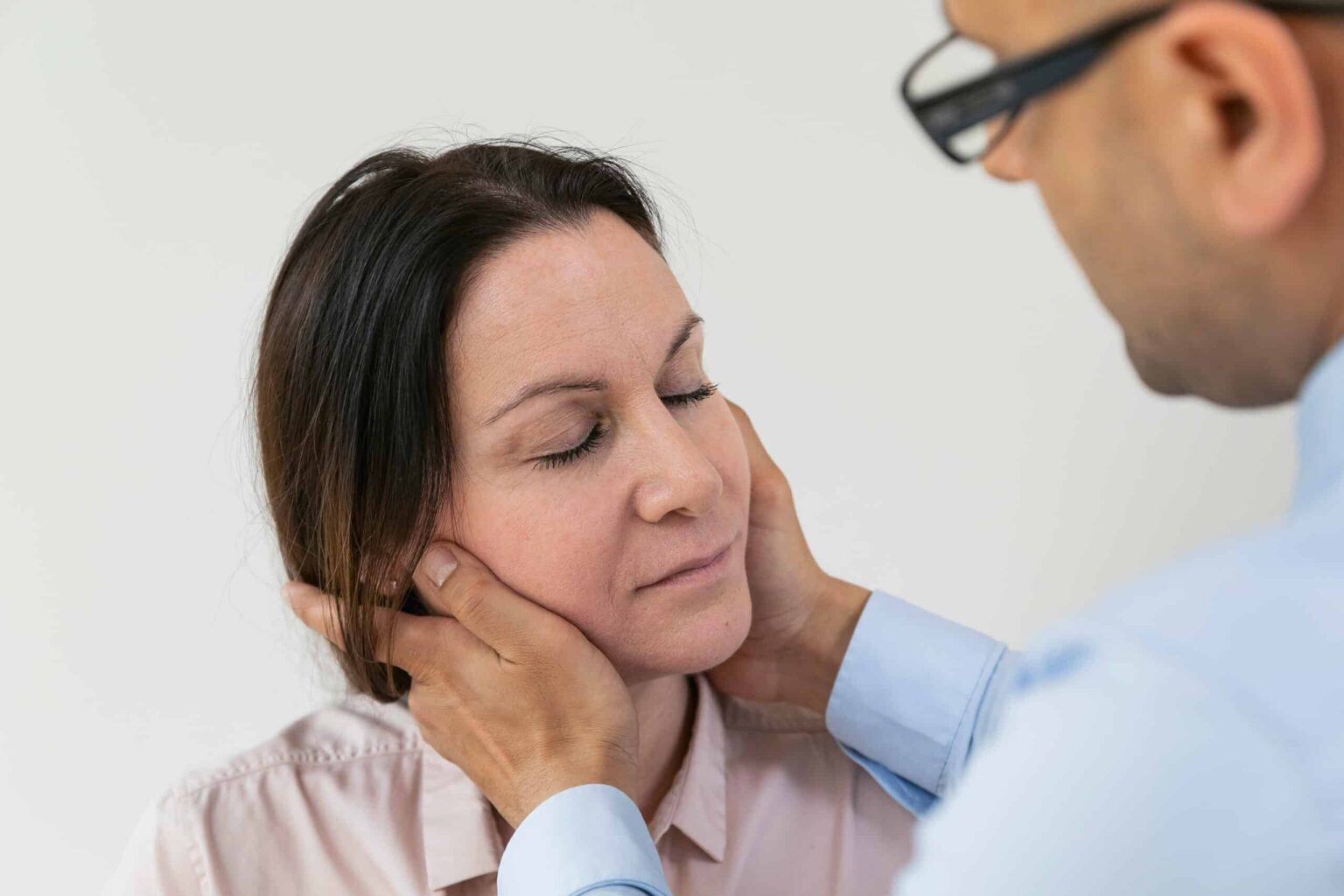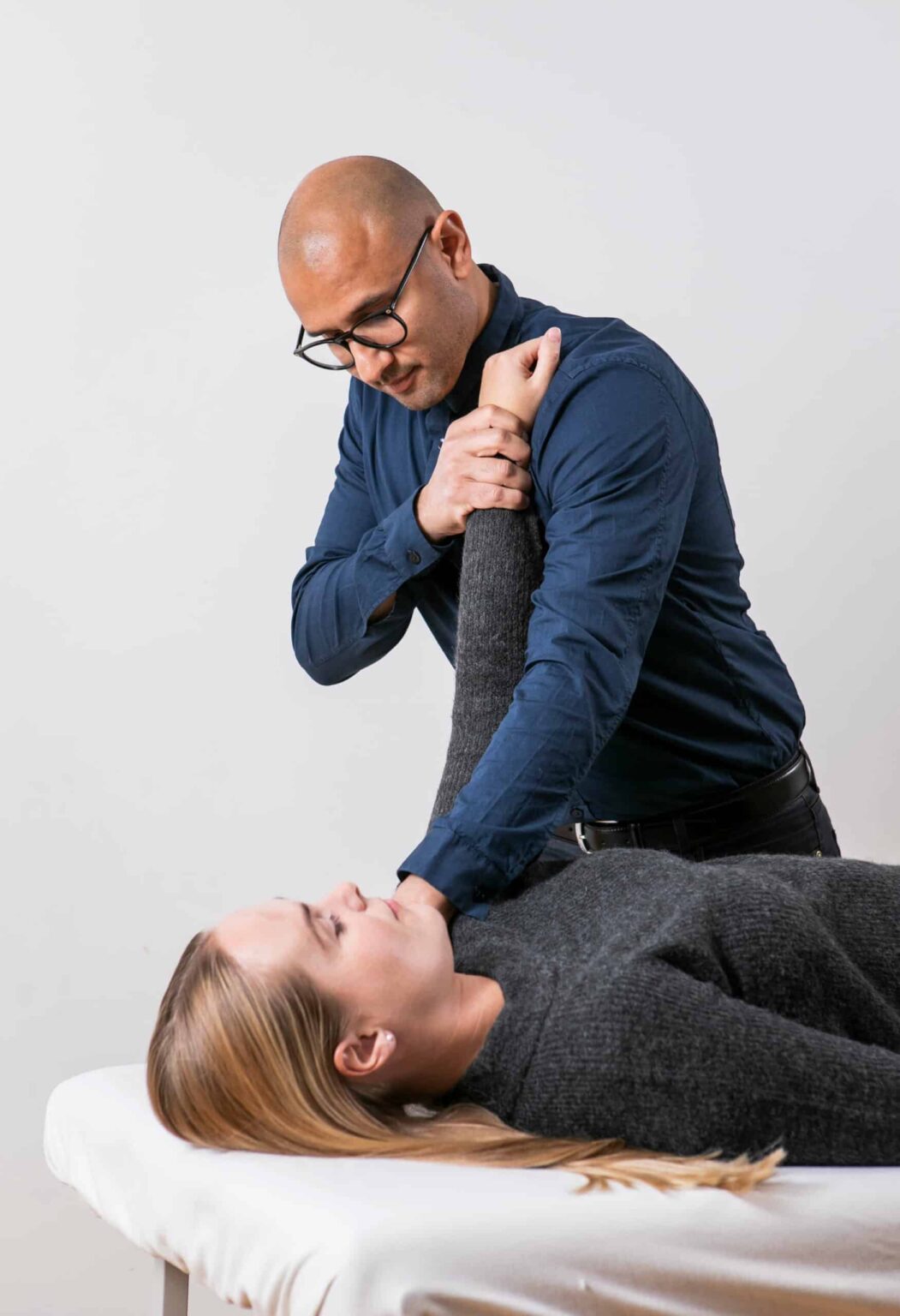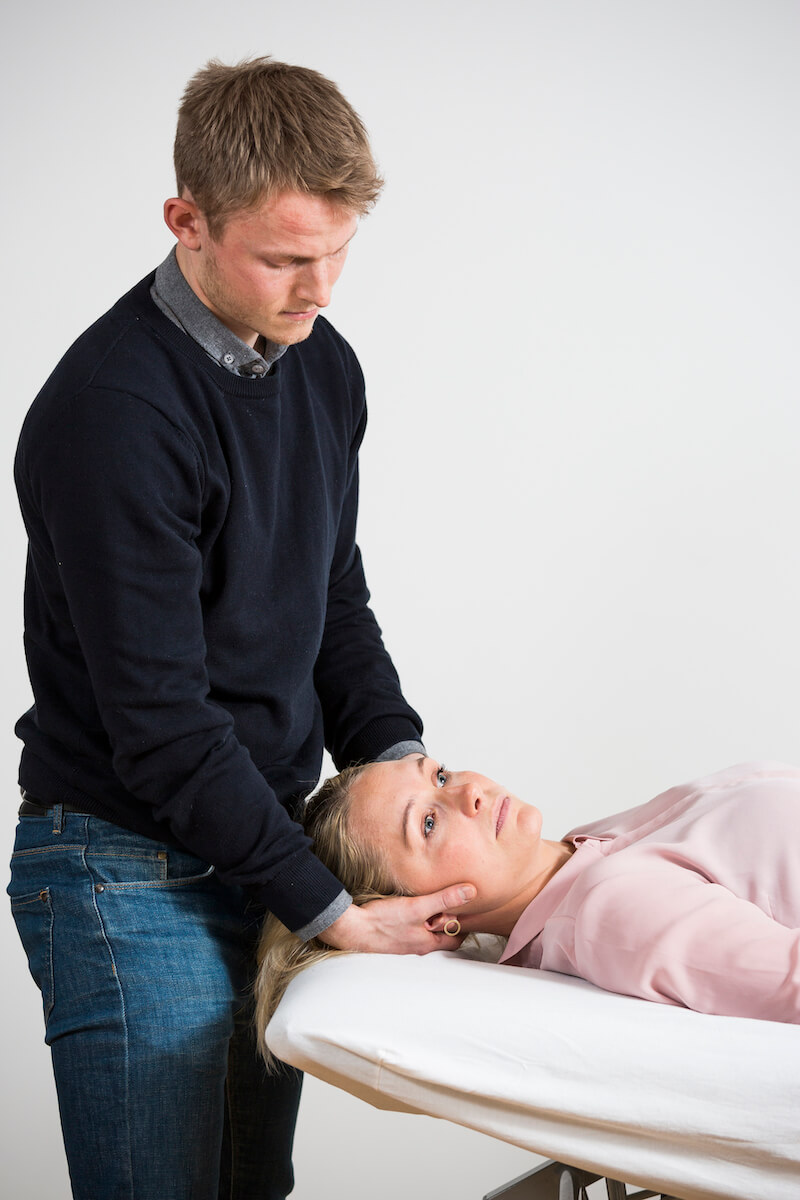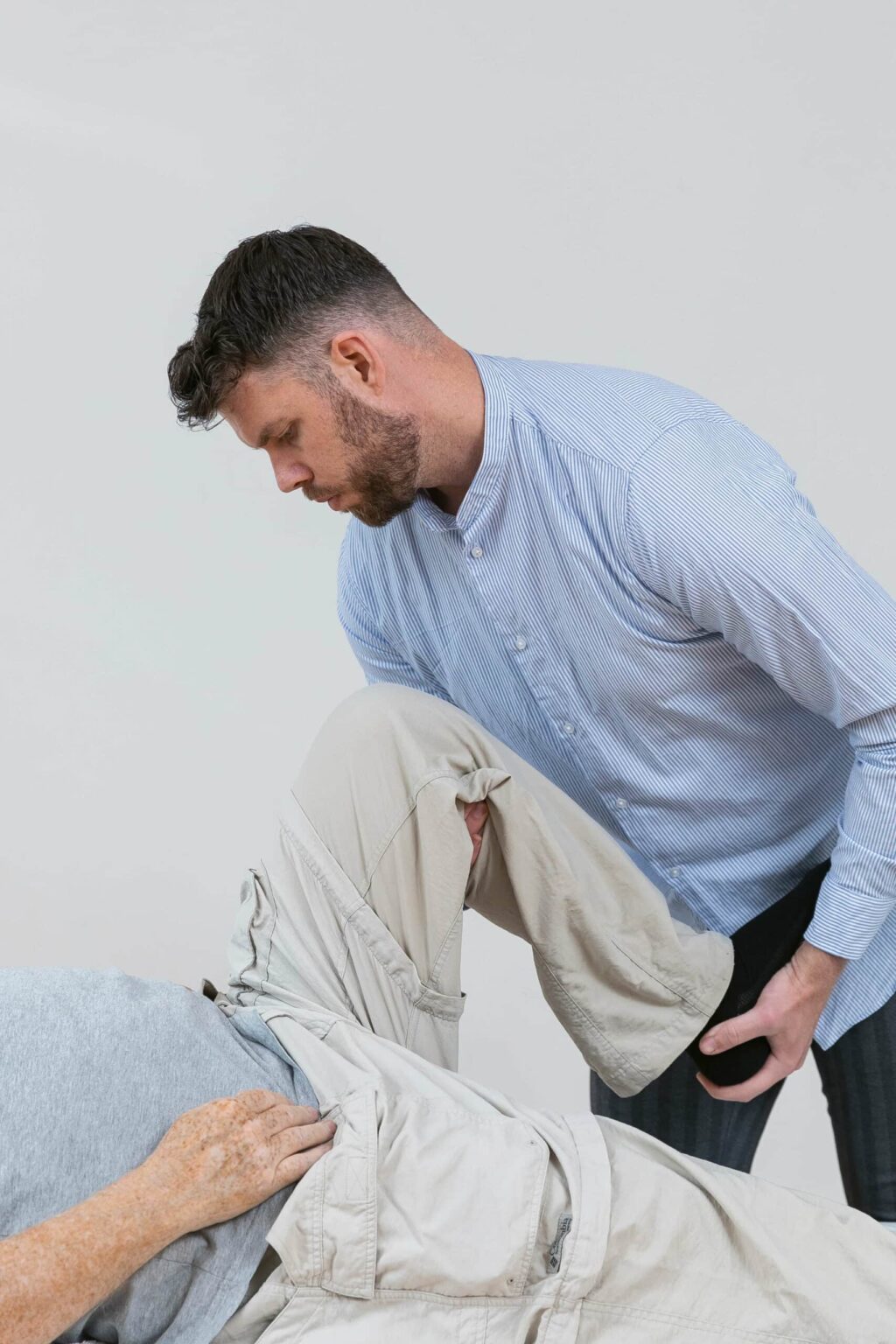We advise about
Stress and its consequences
What is stress? What can you do?
What is stress?
Stress is a reaction – not an illness. It is defined as: “The condition that occurs when external demands from the environment, or internal demands from the person himself, exceed the person’s resources”. It can be seen as the result of three different elements that come in as many different combinations as there are people.
Need help? Book an appointment today
- Environmental factors that affect the individual (“stressors” can be work, family, bills, etc.)
- The interaction between the environment and the individual (“perceived stress” is relationships with fellow humans, feeling of control over one’s own life situation)
- The individual’s physiological, behavioral and psychological reactions to stress (“stress response”)
So depending on what type of person you are, your work situation, your family situation, your lifestyle and much, much more, you will react differently to stress. That’s why it’s so important not to use a “one size fits all” solution to get through it.
Jump to section [Show]
Different types of stress
We distinguish between short-term and long-term stress. Short-term stress can enable us to cope better with physical and cognitive stress – prepare us for battle. Everyone is exposed to short-term stress at some point, and it can be an advantage in many different situations; in traffic, during exams or when we play sports, for example.
Short-term stress
- Sharpens attention
- Increases concentration and focus
- Strengthens learning ability and memory
- Increases sugar and fat levels in the blood (so the muscles have something to burn)
- Increases blood supply to the muscles (so that the sugar and fat can get there)
- Increases heart rate and blood pressure
The trigger that triggers the stress response can sometimes be so powerful that it results in confusion, anxiety, and paralysis. But unless you live an unusually action-packed life, or are regularly surprised by a tiger in your bedroom, this fortunately happens quite rarely.
It is important that there is a balance between stressed and non-stressed periods, so that the body can build up its energy stores and recover. If the stress lasts too long – weeks, months, or even years – the effects become completely different.
Long-term stress
- Can overload memory and concentration, causing them to “fade out”
- Decreases the ability to regulate blood sugar
- Causes too much sugar and fat in the blood, which puts a strain on the heart and circulation
- Causes high blood pressure, which puts strain on the heart and circulation
- Weakens the immune system, making you more susceptible to infections
This means, among other things, that people affected by stress are more likely to develop cardiovascular diseases, type 2 diabetes, and various hypersensitivity diseases.
Sources: sundhed.dk, rm.dk and sst.dk

What happens physiologically when we experience stress?
Stress is about getting the body ready to perform something physically – there must be enough energy to fight or flee from the stressor.
Our stress response is handled by two of the body’s most important systems: the nervous system and the hormonal system – together the neuroendocrine system. The “command pathway” in this system starts in the hypothalamus and then goes to the pituitary gland, which, together with the sympathetic nervous system, communicates with one of three organs; the adrenal glands (for our stress response), the thyroid gland (for our metabolism) or the reproductive organs (for our reproduction).
When a stressor (see above) is perceived as a real or potential threat, the brain’s fear and defense center, the amygdala, sends a signal to the hypothalamus, which communicates to the pituitary gland to tell the adrenal glands to release adrenaline. Once the hormone is released into the bloodstream, it acts on many different organs. It increases the heart rate, dilates the bronchi and pupils, slows digestion, and ensures that glucose and fat are released from the liver. All so that you can fight or flee from the tiger (“fight-flight”).
Once this initial response has subsided, the adrenal cortex is stimulated to release cortisol, also known as adrenocorticotropic hormone. It is a strong anti-inflammatory and suppresses the immune system, which is very smart when you are just starting to flee, because the immune system is a fairly energy-intensive system. However, cortisol also increases the glucose level in the blood, ensuring that there is enough energy for the physical challenge the body is facing.
If this condition lasts too long, we end up with the symptoms described under “long-term stress” above.
Prolonged high cortisol levels will also have a negative effect on metabolism, digestion and bone formation, because cortisol inhibits the active metabolic hormones. It also reduces the amount of signaling substances that control the female cycle, which can lead to a lack of ovulation and a drastic decrease in fertility.
Source: cancer.dk, stresstalk.dk, sciencedirect.com and sund-forskning.dk
What are the symptoms of stress?
Since stress affects different people in different ways, the symptoms will always vary from person to person. However, there are a number of more or less typical symptoms that recur. The physical ones are:
- Headache
- Heart palpitations
- Sweating
- Frequent infections
- Loss of appetite
- Diarrhea
- Dizziness
- Shaking hands
- Decreased sex drive
Of course, there are also a number of psychological symptoms of stress:
- Fatigue and sleep problems
- Memory problems
- Tension
- Difficulty concentrating
- Impatience
- Unexplained anxiety
- Depression
Sources: rm.dk, psykiatrifonden.dk and netdoktor.dk

Difference between being busy and stress
Most of us have experienced at one time or another having a lot to do, being challenged or otherwise having a lot on our plate – being busy. It can be stimulating, and you may even feel that you get more energy from it. A significant difference between being busy and outright stress is time. The longer we are busy, the greater the risk of developing stress that is harmful to health. The physiological changes that occur in the body when stress lasts too long are some of the factors that distinguish busyness from stress. That is why it is important to keep an eye on the above-mentioned symptoms of stress.
Source: finansforbundet.dk
Can I test myself to see if I have stress?
If you have all these symptoms at once, then – apart from being really unlucky – it is not certain that you have stress, although it is quite likely. To find out if you have stress, the National Research Centre for the Working Environment has created a chart with 20 statements in it. The answers are graded red (“all the time”), yellow (“sometimes”) and green (“rarely”). If you tick 5 or more in the red column, it is recommended that you see your doctor, who can refer you for further investigation.
Source: smds.dk
Causes of stress
Long-term stress is typically triggered in the wake of major and serious life events, possibly spiced up with a hard-pressed everyday life with a high workload, lack of free time or rest, and personal conflicts. Often, it is several things mixed together in one big mess. Work-related stress has now been fairly well researched in terms of what triggers it, and some of these factors will also apply to stress that is primarily triggered in private life. In general, the following applies:…
- Low influence on own situation
- Feeling of meaninglessness
- Feeling of unpredictability
- Poor social support
- Lack of recognition
- Requirements that are too high or too low
…contributes to the development of long-term stress. Physical working conditions or piecework and shift work can also have the boring result.
Source: altompsykologi.dk, sst.dk and sundhed.dk

Good advice for stress
For anyone suffering from stress, a thorough and individual assessment is the key to putting it behind them. However, the path to that end is far from always straight and logical, and therefore it may be a good idea to focus on several areas at the same time.
- Know your signals! It is important to be able to identify stress quickly in order to better alleviate it.
- Know what is stressing you out. It makes it easier to focus on the right things.
Once you have gained greater insight into what triggers you and how, you can do a number of things yourself to improve your situation.
- Planning your day sounds pretty boring at first glance, but it can help you have a better overview and prevent you from taking on too many tasks.
- Remember the breaks! We recover during our breaks. Both physically and mentally. Feel free to include them regularly.
- Exercise. Strength and conditioning training (at a relatively manageable intensity) prevents and alleviates both stress and a number of the less fun side effects it has.
- Get as much sleep as you can. Your physical and mental recovery primarily takes place at night, so if we don’t sleep, none of our body’s systems can keep up.
- Keep your consumption of tobacco, alcohol and other stimulants as low as possible. The less the better. It’s hard on the body to handle and can affect sleep.
- Talk to people! A psychologist, your friends, your colleagues, your family. In addition to providing a sense of closeness, it is important that people know how you feel – otherwise how could they help.
Sources: sst.dk and netdoktor.dk
Osteopathy and stress
It is clear that if you work in a terrible work environment, it makes the most sense to start by trying to do something about it. But if you remember the physical symptoms from further up in the article, there were things like headaches, dizziness, heart palpitations and diarrhea. Some might also throw jaw tension into the mix. All things that an osteopath looks at. As always, osteopathic treatment seeks to normalize imbalances in or between all the body’s systems: nervous system, hormonal system, organ system, musculoskeletal system, circulatory system and respiration. A good balance between the loading and unloading of these systems gives the body the best conditions for recovery. When the osteopath looks at stress and the symptoms derived from it, there are many different factors that are worth looking into:
- Tension in and around the skull, its membranes and various muscles, especially the jaw muscles
- Restricted movement in the neck and back
- Thoracic mobility and breathing
- Tensions around organs and their connections to the skeleton
- Sleep hygiene – does the body have enough opportunity to recover?
- Diet – is there a slightly high intake of stimulants and a slightly low intake of, for example, vegetables?
- Exercise habits
These are either treated manually or influenced through advice and guidance. Optimal treatment and planning of external factors gives the body (and mind) peace to recover properly.

Often related problems

Jaw joint pain

Vitamin deficiency – spot & control the symptoms

Trigger finger

Carpal tunnel syndrome

Sprains

Tenosynovitis

Nerve pain

